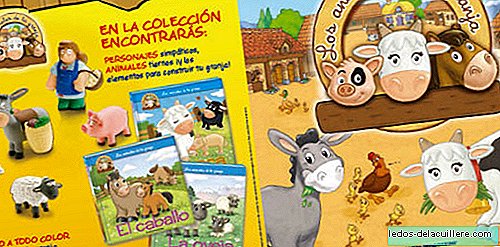
For a while Spain has joined the tendency of other countries to seek alternatives to cow's milk and useother types of milk howrice, oatmeal, soy or goat milk. The latter is a return to the natural and rural. Surely many of our parents and grandparents grew up with goat milk as part of their main diet.
The production of goat milk has resurfaced thanks to the appearance of new products in the European market that seek a healthier and more balanced nutritional composition. Products likeyogurts, cheeses or infant formulas for babies Goat milk based are increasingly used in our diet.

As of 2013, the European Food Safety Authority (EFSA) approved the commercialization in Europe of infant formulas based on goat's milk, the interest of medical professionals and parents in this type of products has been increasing. A clear example is the infant formula Capricare, unique elaborated based on whole goat milk, which has become a reference for pediatricians and parents looking for products that provide the nutritional benefits of goat's milk.
But, What differences does goat milk really bring?

The properties and benefits of goat's milk have been demonstrated in numerous clinical studies.
It is more digestive. Goat milk proteins digest more easily than other milk proteins, such as cow's milk. This is because goat's milk allows digestive enzymes to shed it better, aiding digestion.
It helps relieve mild constipation. The natural fatty acids present in goat's milk facilitate better absorption allowing less hard stools and therefore easier to expel.
It has lower allergenic load Than cow's milk. Goat milk contains less amount of Alpha S1 Casein, one of the main allergens causing APLV (Cow's Milk Protein Allergy). This does not mean, in any case, that babies suffering from APLV can ingest infant formula made from goat, also containing Alpha S1 Casein.

- It is secreted by a process more similar to breast milk Than cow's milk. Unlike this, goat milk is secreted by a process similar to breast milk called "apocrine" secretion, which provides more cellular components, such as nucleotides and free amino acids.
Other properties
In addition, goat's milk contains predominant micronutrients that improve its nutritional value with respect to cow's milk, such asvitamins A, B2, B3 and D; and minerals such as phosphorus, magnesium and potassium. Vitamin A, for example, is essential for the development of vision and immune.Goat milk is also rich in calcium, which is better absorbed in combination with vitamin D, being both essential elements for the development and maintenance of bones and teeth.












